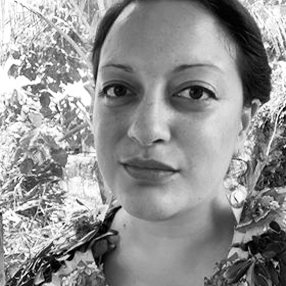pronunciation
For now, we speak only in brooms:
sweeping sand across the teeth
of concrete slabs, we brush and repeat
each stone syllable of the clearing
where our great grandparents are buried.
Some words for memory are always here,
sounded out by the ant feet
hefting sand grit and glitter homes, fan-light
over the blue tongues of plastic flowers—
the weeds will try to cover all the other ways
of saying history.
But our pronunciation begins with the clearing we make in our bodies first:
where the broom handle widens the oh’s
in the mouth of our hands,
how we shake open the throat
to settle each pile of leaves before burning them.
Trust the body to open in our language
with the rhythm of weight—
one hand pushing sand,
the other pulling syllables
in one last sway
as we close the gate of the malaʻe
so the trees can better hiss-hush at the edge of the ancestor
speaking in all our names.
Copyright © 2022 by Leora Kava. Originally published in Poem-a-Day on May 17, 2022, by the Academy of American Poets.
“This poem began after I finished clearing weeds and sand from my great-grandmother’s grave—her malaʻe—which sits next to my family’s house in Kolomotuʻa, Tonga. I did not grow up speaking Tongan, and this poem documents one of the moments I felt able to reconcile the pull of my desire to learn Tongan with the push of feeling inadequate as a Tongan descendent because of my lack of verbal language. Everyday acts of care, like sweeping the malaʻe, became lessons that helped my body better pronounce an understanding of the land and culture that hold my ancestors and raised my family.”
—Leora Kava

